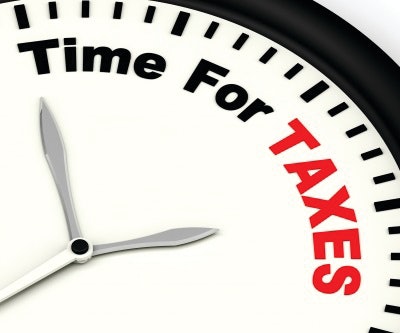
This article was written exclusively for ForConstructionPros by small business loan provider Balboa Capital.
We are well into the New Year, and there is no better time to get a head start on your business taxes and look at ways to save on your upcoming construction equipment purchases. Doing both can improve your company’s bottom line and help you stay on top of your finances throughout the year, the latter of which can reduce any unexpected surprises when it comes time to do your taxes.
Tax deductions
When you purchase construction equipment that is eligible for the IRS’ Section 179 Tax Deduction, you can deduct a certain amount of the cost and/or monthly finance payments (if you opt to lease your equipment instead of buying it.) To qualify for the Section 179 deduction, your construction equipment needs to be purchased and put into business use before December 31, 2014. Given that it’s early in the year, you have more than enough time to take advantage of this special tax provision.
There are many types of construction equipment and vehicles that qualify for the Section 179 deduction, whether new or used. However, it is recommended that you consult with a construction industry accountant prior to making any purchases because the Section 179 expensing rules and limits can change without notice. A knowledgeable tax professional will determine what is best for your company and ensure that your equipment deductions are being claimed properly when it comes time to file your taxes.
Latest Changes in Tax Law Make Planning Even More Critical
When filing your taxes, ask your accountant if you can deduct any of these common construction business expenses, if applicable:
- Office supplies and furniture
- Computers and software
- Online business services
- Business postage
- Promotion/publicity
- Telephone calls
- Charitable contributions
As mentioned earlier in this article, construction equipment lease payments, or portions thereof, can be treated as tax write-offs under the Section 179 Tax Deduction. Planning is paramount, so ask your accountant if the equipment you are interested in falls under the Section 179 provision, and how much of the lease payment you can write off. Keep accurate records of your lease financing expenditures so you can present them to your accountant when it comes time to file your income taxes. It is also important to remember that the construction equipment you lease needs to be used for business purposes more than 50 percent of the time in order to qualify for Section 179. Your accountant can assist you in determining the percentage of your business’ equipment use based on the information you provide them with. Construction equipment leasing and its applicable tax deductions under Section 179 might be able to decrease your tax payments and help you allocate cash for a wide variety of other business-related needs.
Use the Tax Bill to Your Benefit
Every construction company’s financial situation and equipment needs are different, so you should use the information above as a guideline. After discussing your business taxes and proposed equipment purchases with your financial advisor and/or accountant, you can determine what strategies are best for your construction operation.



















